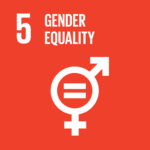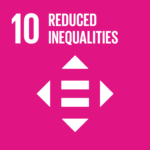It is true that women have already broken many barriers but to achieve full gender equality all over the world, a very long bumpy road is still ahead.
With many COVID restrictions having been lifted here in the year 2022, we are now allowed to look back at the last two or so years and see how the pandemic has affected our lives outside of health-related issues. In the context of staying at home, a good part of the human population is often expected to do so long before the restrictions as part of an arbitrary gender role. For women in many parts of the world, how has the coronavirus affected their lives?
RELEVANT SUSTAINABLE GOALS


Together with the Kantar Team, UN Women researchers interviewed around 1000 people across Colombia, India, Japan, Kenya, Nigeria, Philippines, Sweden, Turkey, United Arab Emirates and the USA between 2018 and 2020 as their , then added Austria, Brazil, Denmark, France, Mexico, Poland, Senegal, South Africa, Spain, and Vietnam later on.
‘Grotesque’ Gender Inequality Between Sexes, thanks to pandemic
As UN Women says, future SDG plans are heavily dependent on the success of SDG 5 in 2030, because gender equality is not only connected to other issues (like education, health and economy), but empowered women can also help maintain community peace. Despite its importance, studies have shown that we are moving backwards instead, with developed countries overturning laws that have protected birthing parents for years. Although we as individuals can promote equal opportunities for all genders, policies and regulations need to be made regarding it before anything can significantly improve.
In UN Women’s latest assessment, 13% of the indicators used to assess progress are ‘very far’ from the targets under SDG 5 – that means that over a quarter are ‘far or very far’ from the 2030 targets. 5 key findings include:
- Women and girls are still disadvantaged by strict social standards. An overwhelming 91% of respondents agree that gender equality in all areas is necessary for a country to advance, yet discriminative gender stereotypes still thrive in this day and age as showcased by other key findings.
- Political gatekeeping for women. Though 82% of respondents believe that presenting more opportunities for women in politics is an important factor to bettering a country, 63% of respondents still agree that men might find it easier to run for elected office compared to women.
- Domestic violence on the rise due to COVID-19. When asked about physical abuse in the household, 16% of women voiced acceptance towards hitting their partners in several circumstances, in comparison to the 22% of men with the same response. Meaning that a total of 19% of all respondents hold the belief that hitting one’s significant other can be acceptable in some situations.
- The rise in media broadcasts on traditional gender roles, especially for men. Whereas 2018 saw 54% of respondents found that the media portray women in their stereotypical roles of wives and mothers, 68% hold that belief in 2020. Specifically for the representation of men in traditional gender roles (i.e. as leaders as well as head and providers of families), 72% of respondents in 2020 find that the media often broadcast them as such.
- Young women are prepared to advocate themselves, with young men standing as one of their biggest enemies. The team found that in a demographic of 16-19 years of age, young women are aware and vocal about gender inequalities and find change to be essential for society. Yet interestingly enough (and rather sadly), young men of the same age demographic seem to uphold more traditional views of gender and its roles. While 87% of young women note that treating women as an equal to men may be beneficial for the betterment of society, only 81% of young men echo the sentiment.
You can find detailed breakdowns by country and more context and perspective in the full report here. Despite its importance, studies have shown that we are moving backwards instead, with developed countries overturning laws that have protected birthing parents for years. Although we as individuals can promote equal opportunities for all genders, policies and regulations need to be made regarding it before anything can significantly improve.
These study findings reinforce the necessity of tackling social norms that hold women and girls back. By highlighting locally nuanced beliefs and perceptions, the findings are intended to provide decision-makers with an evidence-based tool. Using the data, policymakers, advertisers and media owners, civil society organizations and more can effectively address harmful gender stereotypes and the threats it poses to progress.
Lead image courtesy of the creator: Feodora Chiosea (via : Getty Images/iStockphoto)
The article was initially published on 20th August 2022.
You may also be interested in :
Normalisation of Menstrual Pain Keeps Menstruators From Getting Help



